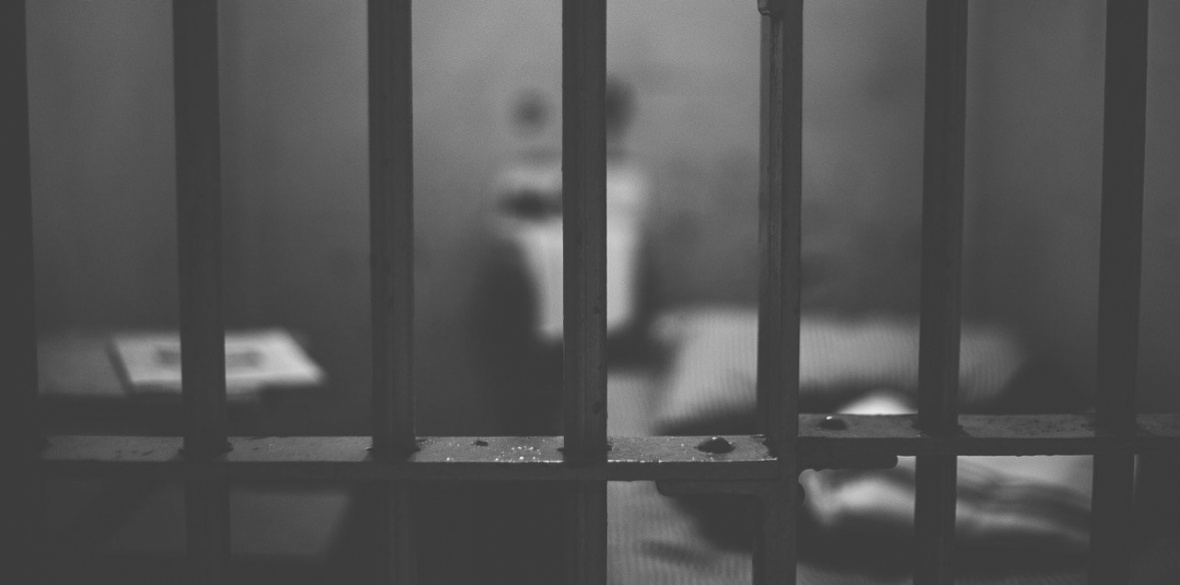This is the last article you can read this month
You can read more article this month
You can read more articles this month
Sorry your limit is up for this month
Reset on:
Please help support the Morning Star by subscribing here
CAMPAIGNERS say that immigration detainees they are supporting fear they could “die behind bars” and are struggling to cope.
And the charity Bail for Immigration Detainees (BiD) has warned that holding detainees in prisons where they are confined to cells for 23 hours a day amid soaring Covid infections “may amount to inhumane treatment.”
As Covid-19 cases rapidly spread among the prison population in England and Wales, the Home Office is facing urgent calls to free hundreds of immigration detainees who have already served their sentences.
Covid cases jumped by 70 per cent in prisons in December, prompting warnings from shadow justice secretary David Lammy last week of a “public-health emergency unfolding before our eyes.”
Non-British nationals who are given a sentence of 12 months or more face automatic deportation and can be detained under immigration powers in jails. The number of people held under these powers has increased in the pandemic, with 498 people kept behind bars, according to the most recent figures published in September, up from 405 in December 2019.
Prisons have been put under tougher restrictions to stop the spread of Covid, with most inmates locked into their cells for 23 hours a day. Social and legal visits have been suspended, except those on compassionate grounds, since January 5 when Britain went into a third lockdown.
“Our clients in prisons are subject to an excessively repressive regime without a time limit or access to assistance to secure release, all of which is having a significant impact on [their] mental health,” Bail for Immigration Detainees director Rudy Schulkind said. “It is impossible to overstate the stress and suffering that many of our clients are having to undergo and, understandably, many are struggling to cope.”
Mr Schulkind said that the ban on legal visits means detainees are “effectively prevented from challenging their detention or appealing their deportation.”
Britain’s use of prisons to hold migrants has been criticised by UN refugee agency UNHCR, which states that immigration detention should not be punitive.
“Prisons are an inappropriate place to hold immigration detainees at any time, but under the current restrictions this may well amount to inhumane treatment,” Mr Schulkind told the Morning Star. “This practice is incompatible with access to justice, which is a fundamental pillar of the rule of law, and denies our clients the fundamental right to liberty.”
BiD said a “significant” number of its clients have been in Britain since childhood, went to school in this country and have family, including children, here. “They are British in all but paperwork,” Mr Schulkind said.
Association of Visitors to Immigration Detainees (Avid) director Ali McGinley said: “People held under Immigration Act powers in prison are being held for administrative convenience. That the government continues to prioritise this convenience over public health beggars belief.”
Ms McGinley said that tough restrictions that force detainees and inmates to spend the majority of the day locked in their cells with no social visits are creating a “mental-health crisis in prisons.”
“This is effectively solitary confinement, which is well known to cause psychological harm,” she said.
“It is vital that steps are taken towards the safe and managed release of everyone held under Immigration Act powers from prisons, as a matter of urgency.”
Home Secretary Priti Patel has so far ignored calls urging her to release immigration detainees from prisons, including a letter sent in December by 40 organisations and lawyers highlighting problems with legal access, and another last week by 73 organisations demanding all detainees be released.
More than half of prisons in England and Wales, 70 of 121, have now recorded outbreaks of Covid-19, according to the latest Ministry of Justice figures. In the week ending January 18, 1,296 prisoners tested positive for Covid, more than double the previous week when infections totalled 602.
The Home Office said that it is facilitating contact with lawyers remotely and the Prison Service allows physical meetings “where possible.”
A government spokesperson said: “We take the welfare of those in our care extremely seriously and ensure all medical advice is closely followed and detainees self-isolate where needed.”
 Bethany Rielly
Bethany Rielly









